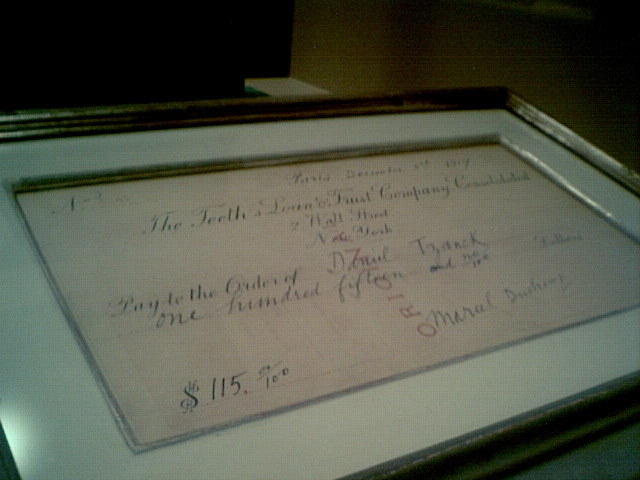
The Tzanck Check and "The Tzanck Check"
DADA artist Marcel Duchamp tested Jonathan Culler's allegation that audiences expect art to be different from and more difficult than life by creating works that played with ordinary-ness in creative ways. His most famous was a "ready-made" work constructed from an upside-down men's urinal that was dated and signed ("R. Mutt") as if it were a work of art. Its original was lost, but a reconstruction currently in a museum is thought to be worth enormous sums. When Duchamp moved to New York City, he once found himself without the funds to pay his dentist, Dr. Tzanck. He painted a check for $115, signed it with his own name, and the doctor was astute enough to realize that the check was worth at least the amount painted on its face. In fact, even autographs of artists of Duchamp's character are worth large sums, without the witty imitation of a check (or is it an "imitation" when both utterer and recipient accept it as legitimate?). To complete the transaction, some years later, Duchamp repurchased the "check" from the dentist. Art's illusion works as part of life (the artist's, the audience's) but it also plays its own game with readers/viewers, and "the rules of that game of art" are what the Reader-Response critic detects and analyzes.
